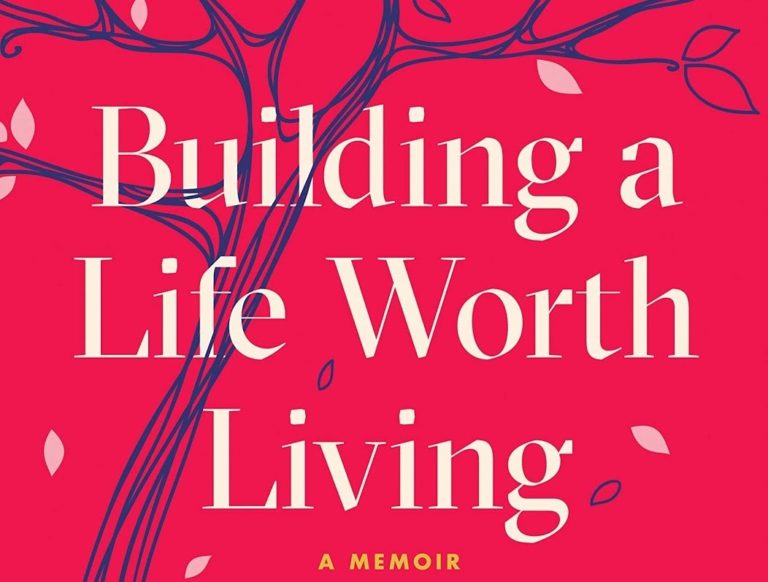Review of Building a Life Worth Living: A Memoir
Random House New York. 2020. 357 pages.
In 2011, renowned psychologist Marsha Linehan stood in a large auditorium filled with familiar faces, finally ready to expose the connection between her past and her life’s work. Five decades earlier, while sitting alone in a high-security unit labelled as one of the most disturbed patients unable to recover, Linehan made a vow to herself. Her life’s goal would be to provide the most suicidal individuals “a way out of hell” and a way to find a life worth living.
Linehan’s memoir, Building a Life Worth Living, shows exactly that. It is the story of her tumultuous journey towards success in order to drastically transform her life and the lives of others. She discusses the long process of developing her ground-breaking dialectical behaviour therapy (DBT), which offers the most emotionally unstable individuals —specifically those with borderline personality disorder (BPD) — the tools to not only live but to thrive. Due to the nature of the memoir, readers should note that it discusses sensitive subject matter such as self-harm and suicide which may be triggering.
She masterfully weaves her narrative with intimate details about her mental health, personal life, spirituality, and her academic journey that led her to become a world-renowned clinical psychologist. Her willful personality shines through especially when she explains her difficulties in finding respect as a female in a male-dominated industry, and how often colleagues tried to discredit her techniques.
Along with exposing her personal connection to mental health, the memoir is very informative from a medical standpoint. She explains the differences between traditional psychotherapy (talk therapy) and behaviour therapy. Her approach is that “you can’t think yourself into new ways of acting; you can only act yourself into new ways of thinking.”
She also uncovers some of the adverse stereotypes and judgements many mental health professionals had (and some still have) about people with BPD. They were labelling them as untreatable, just as she had been. It was dehumanizing. It seemed dehumanizing in a sense. It was shocking to read that these patients were not people; they were simply their diagnosis. The ones most in need of care were the ones turned away from treatment. It was as if doctors were more concerned with their reputation of success than of the actual success of a patient’s recovery.
I think this part of the memoir showcases just how seminal Linehan’s work has been because she exposed what mental healthcare had been lacking in many ways. As society is becoming more transparent about mental health, a memoir such as this is important to showcase how far we have come in our acceptance, but how incredibly far we still must go.
Each chapter is sectioned into smaller headings, providing more context that makes it easier to follow because she often jumps back and forth between portions of her life offering examples of the components of DBT. Most of the memoir is written in the first person, however, Linehan provides recollections from significant people in her life such as family members, colleagues, and students. She also provides sections of clinical notes written about her stay at a mental institution and letters exchanged with her therapists. With this, we have a deeper understanding of her mental instability as a young adult as well as some of the problematic approaches to mental health during the 60s and 70s.
As someone diagnosed with BPD and who struggled most of my life to find effective forms of treatment and mental health support, I can attest to how important and life-altering DBT is. Linehan is correct in stating that she has fulfilled her vow. I think a huge reason that DBT is so successful is that it comes from a place of true empathy and Linehan’s genuine care for her patients. She explains that the “dialectical” part of DBT is what makes it unique and is “the dynamic balance between acceptance of oneself and one’s situation in life, on the one hand, and embracing changes towards a better life, on the other.” DBT is not therapy in a traditional sense but “a program for self-improvement.” It is a set of tools taught allowing those with severe emotional dysregulation to find their own reasons for living. However, these tools are not only for those with a history of mental health illness. “DBT skills are life skills,” which makes the memoir act as a self-help book at times.
Despite the struggles faced, Marsha Linehan’s vivacious personality exudes through the pages and will captivate any reader interested in both mental health and self-improvement. Ultimately, this memoir is filled with hope and validation. Through bravely exposing the truth about why she became a psychologist, she offers a story of hope for those struggling with their mental health. It provides reassurance that recovery from the grip of suicidal thoughts and self-destructive behaviour is possible. Linehan proves that with acceptance and determination, we can all build a life worth living.

